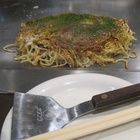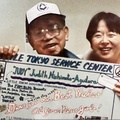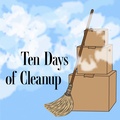I saw my first homeless person in Japan when I was visiting Tokyo. Actually there were a whole group of them on the lower level of a train station. It was winter and snow was on the ground outside.
Hiroshima, though, not so much.
I am, however, on my way to be the first homeless Hiroshima person outside the country. And my best friend and present roommate, Risa, is going to be the second.
I’ve had a place to live in Manhattan due to Risa’s kindness, or should I say the generosity of her European benefactor, Frederick. That is now all going to change with his new girlfriend’s move into the very apartment that we were staying in.
I’ve never directly asked Risa the terms of their relationship. And now, walking along the East River, I figure that this is as good as a time as any to pry. “Ah, were you…”
“What?”
“Nothing.”
“I didn’t sleep with him, if that’s what you’re asking. He told me that he believed in my talent as a set designer. That he wanted to help me.”
Risa is a bit naïve about men, but she’s been so sheltered in the past that she can afford to be. While Risa is a princess type, I’m like a kappa, a little water imp with scaly skin. A kappa, who lives on the edge of rivers, has to look after herself. No wonder I get in so much trouble.
Consumed by our current predicament, Risa stops walking. “I can’t leave NYU. I love the theatre program. There’s only one like that in the entire country. Maybe the world.”
“Well, what can we do?”
“Waitress?” Risa rethinks her suggestion. “But then, you’d probably get mad at a customer for ordering you around too much.” She’s seen me at my family’s okonomiyaki eatery in Hiroshima. There, I’m armed with two metal spatulas, so people don’t monku too much.
“And you’ll be breaking glasses all day long,” I said. Risa has these long legs that sometimes get away from her. “Maybe we can be interpreters. Translators.”
Risa shook her head. “You’re an awful writer. And you have that Hiroshima-ben going on. You’d have to learn how to speak like a proper Tokyo person.”
She was right. “And you’ll be taking too long to find the right words.” Risa was definitely a perfectionist.
“Then what?”
I stay quiet. We don’t have many options. Maybe I was too rash to reject my uncle’s offer to manage his okonomiyaki venture in Manhattan, I tell Risa.
“No, you can’t do that. I heard how he speaks to you. And your teenage nephew, too. You deserve to be treated much better.”
“I do, don’t I?” I declare. I take out my phone.
“Who are you calling, your uncle?”
The person on the other line picks up. “Morgan, this is Kaori,” I say.
“I’m glad that you called.”
“I just wanted to tell you your plan is not going to work. I will not work for my uncle.”
“Your uncle said that you would be difficult. You don’t understand. I’m doing this for you.”
“For me? Explain,” I demand.
“My bank can’t give you a loan. You don’t have the collateral. But your uncle does. This way you can stay in New York City.”
“Why do you care if I’m here or not?”
“Look, I think that you got the wrong idea from the other night.” His voice is soft and I’m weakening. “I’d like to see you again.”
No, no, no! I can’t be like this. This is wrong. I’m in America now and this is a new me. “Goodbye, Morgan,” I say before pressing off.
“I’m proud of you,” Risa says, draping her skinny arm over my shoulders.
My feet are hurting and I look in my wallet. I have enough for a ride. “Taxi?”
We both know that we should be walking and avoiding extra expenses, but we need something to relieve our burden.
Risa nods and hails a taxi. The first one who spots her stops. She’s very good at things like this.
“Hallo,” the driver calls to us as he opens the back passenger door with a button by his seat. He’s black and speaks with an accent that is definitely not American.
“Hello,” we both respond, sliding into the Prius’ back seat. We give him the intersection for our soon-to-be former apartment.
“Where are you two girls from?” he asks. I guess it’s obvious that we are not from here.
“Japan,” I say.
“Oh, Japan. I’d like to go there someday. We had some Japanese volunteers in my village. Very nice people.”
We find out from him that he is from the north countryside of Ghana, West Africa.
“Where from Japan?”
“Hiroshima,” Rei says.
“Oh, Hiroshima.” His voice becomes flat and hushed.
“No, don’t think about the Hiroshima of World War II and the atomic bomb. Hiroshima is very modern,” I tell him.
“We have the best shopping areas.” Rei would have to say that.
“And food,” I add. “Don’t listen to Anthony Bourdain. Hiroshima is even more delicious than Osaka.” I am completely biased.
“Really? I had no idea,” the taxi driver said. “But then, you don’t know until you go to the country. Before I came to America, all I hear about is Disney World.”
We all laugh, but then an idea hits me. “Why don’t we do that?”
“Do what?”
“There’s Disney World. Why don’t we create what we know best?”
Risa frowns.
“Why don’t we bring Hiroshima World to Manhattan?”
© 2017 Naomi Hirahara





